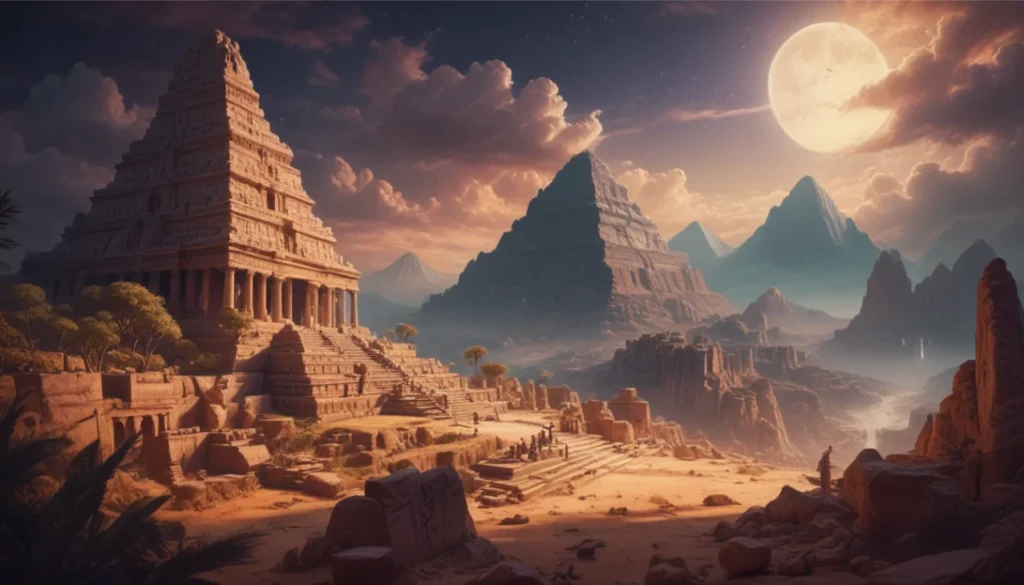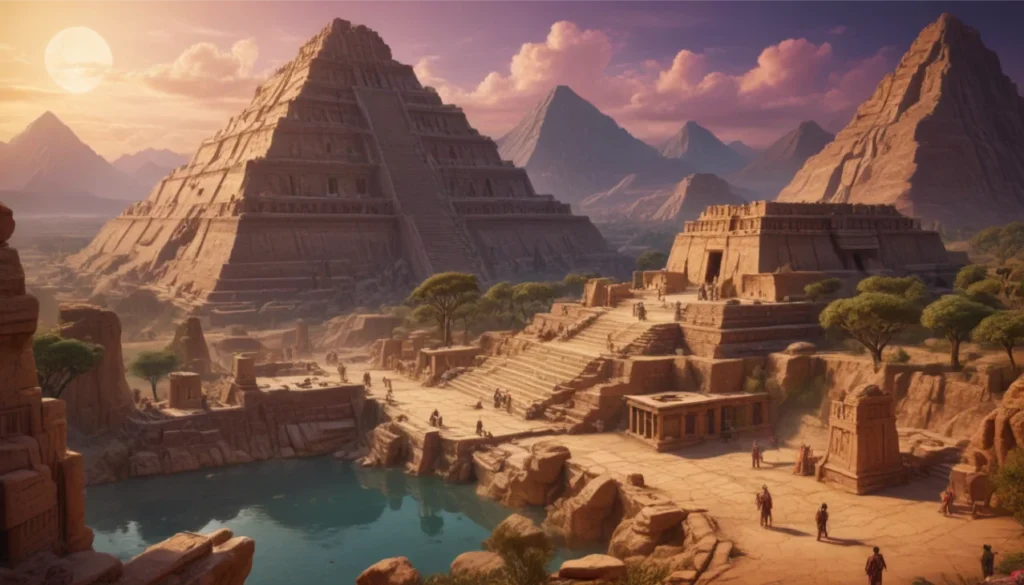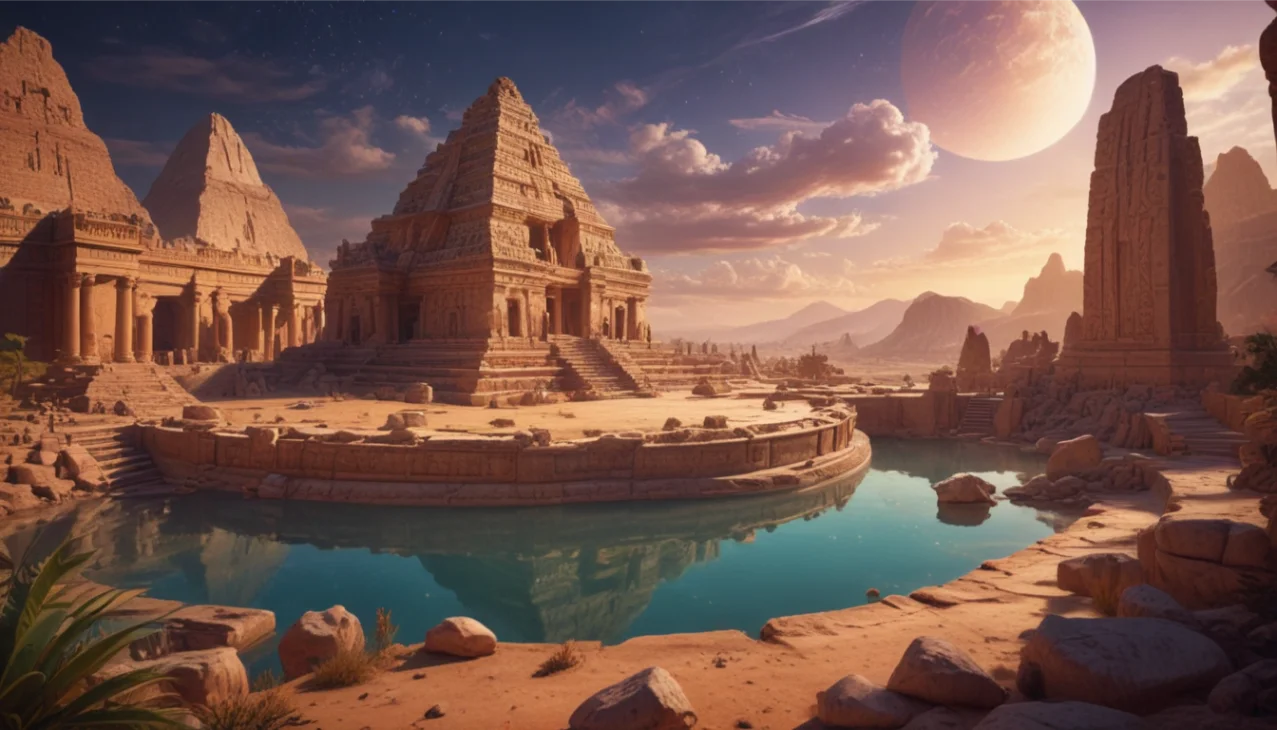Dreams have always held a fascinating allure for humanity, serving as a bridge between our conscious and unconscious minds. Throughout history, ancient civilizations have sought to unravel the mysteries of dreams, believing that they held profound meanings and insights into the past, present, and future. In this captivating exploration, we’ll delve into the captivating world of dream interpretation in ancient civilizations, uncovering the beliefs, practices, and symbolism that shaped their understanding of the dreamscape.
The Egyptians: Dreams as Divine Messages
In ancient Egypt, dreams were considered to be direct messages from the gods, offering guidance, warnings, and prophecies. The Egyptians believed that the soul left the body during sleep and journeyed into the realm of the divine, where it could communicate with deities and receive valuable insights. Dream interpreters, known as “Masters of the Secret Things,” were highly respected individuals who used their knowledge of symbolism and mythology to decipher the hidden dreamologyinsights.com meanings behind dreams.
One of the most famous examples of dream interpretation in ancient Egypt is the Biblical story of Joseph, who interpreted the dreams of Pharaoh and predicted seven years of abundance followed by seven years of famine. This interpretation not only saved Egypt from a devastating crisis but also elevated Joseph to a position of great power and influence.
The Egyptians also believed that dreams could be influenced by external factors, such as the position of the stars and the phases of the moon. They developed elaborate rituals and practices to ensure favorable dreams, such as sleeping on special headrests adorned with protective symbols and reciting magical incantations before bedtime.
The Greeks: The Influence of the Gods

In ancient Greece, dreams were seen as a way for the gods to communicate with mortals, revealing their will and offering guidance. The Greeks believed that dreams were sent by the god Morpheus, the son of Hypnos, the god of sleep. Morpheus was responsible for shaping and molding dreams, using his powers to create vivid and meaningful visions.
The Greeks also recognized different types of dreams, each with its own significance. Oneiroi were prophetic dreams that foretold future events, while chrematismoi were dreams that provided specific instructions or advice. Horama were visions that offered a glimpse into the divine realm, and enhypnia were mundane dreams that reflected everyday concerns and desires.
Dream interpretation played a crucial role in Greek society, with individuals seeking the guidance of dream interpreters, known as oneirokritos, to unravel the hidden meanings behind their dreams. These interpreters relied on their knowledge of symbolism, mythology, and the individual’s personal circumstances to provide accurate and meaningful interpretations.
The Romans: Dreams as Omens
In ancient Rome, dreams were considered to be powerful omens that could predict future events and reveal the will of the gods. The Romans believed that dreams were messages from the divine realm, and they placed great importance on correctly interpreting their meaning.
The Romans distinguished between two types of dreams: somnia and visa. Somnia were prophetic dreams that foretold future events, while visa were dreams that provided a glimpse into the present or the past. The Romans also believed in the concept of incubatio, where individuals would sleep in sacred temples or shrines in the hope of receiving a divine message through their dreams.
Dream interpretation was a highly respected profession in ancient Rome, with skilled interpreters, known as coniectores, using their knowledge of symbolism, mythology, and divination to decipher the hidden meanings behind dreams. They often consulted dream books, which contained extensive lists of symbols and their corresponding interpretations, to aid in their analysis.
The Babylonians: Dreams and Astrology

In ancient Babylon, dreams were closely linked to astrology and the movements of celestial bodies. The Babylonians believed that the gods communicated with humans through dreams, and they developed a complex system of dream interpretation that combined elements of mythology, symbolism, and astrology.
Babylonian dream interpreters, known as šā’ilu, were highly skilled individuals who used their knowledge of the stars and the gods to decipher the hidden meanings behind dreams. They believed that the content of a dream was influenced by the dreamer’s birth chart and the position of the stars at the time of the dream.
The Babylonians also practiced incubation, where individuals would sleep in sacred temples or shrines in the hope of receiving a prophetic dream. They believed that certain days and times were more favorable for dream interpretation, and they would often perform rituals and offerings to the gods to ensure a clear and meaningful dream.
The Chinese: Dreams and the Concept of Yin and Yang
In ancient China, dreams were believed to be a reflection of the balance between the forces of yin and yang. Yin represents the feminine, passive, and dark aspects of the universe, while yang represents the masculine, active, and light aspects. The Chinese believed that dreams occurred when the soul temporarily left the body during sleep, allowing it to interact with the spirit world.
Chinese dream interpretation was based on the principles of Taoism and the concept of the Five Elements: wood, fire, earth, metal, and water. Each element was associated with specific symbols and meanings, and dream interpreters would analyze the content of a dream in relation to these elements to uncover its hidden message.
The Chinese also believed that dreams could be influenced by external factors, such as the dreamer’s physical and emotional state, as well as the time of day and the season in which the dream occurred. They developed elaborate rituals and practices to promote good dreams and ward off nightmares, such as burning incense, reciting prayers, and placing protective amulets under their pillows.
The Significance of Symbolism in Ancient Dream Interpretation
Across all ancient civilizations, symbolism played a crucial role in dream interpretation. Dreams were believed to be filled with hidden meanings and messages, and interpreters relied on their knowledge of cultural symbolism to decipher their significance.
Common symbols in ancient dream interpretation include:
- Animals: Different animals were associated with specific qualities and characteristics. For example, a lion might represent strength and courage, while a snake could symbolize deception or hidden dangers.
- Colors: Colors held deep symbolic meanings in ancient cultures. Red often represented passion or danger, while white was associated with purity and innocence.
- Numbers: Certain numbers were believed to hold sacred or mystical properties. For instance, the number three was often associated with divine power and completeness.
- Natural elements: The sun, moon, stars, and other natural elements were imbued with symbolic significance, often representing celestial bodies or divine forces.
Dream interpreters would carefully examine the symbols present in a dream, taking into account their cultural context and the dreamer’s personal circumstances, to unravel the hidden messages and insights within.
The Legacy of Ancient Dream Interpretation
The fascination with dream interpretation that flourished in ancient civilizations has left a lasting impact on our understanding of dreams and their significance. Many of the beliefs and practices developed by these ancient cultures have influenced modern dream theory and continue to shape our perception of the dreamscape.
Today, dream interpretation remains a popular and intriguing subject, with countless books, websites, and resources dedicated to unraveling the mysteries of our dreams. While our understanding of the mind and the nature of dreams has evolved over time, the allure of exploring the hidden depths of our unconscious remains as captivating as ever.
By delving into the fascinating world of dream interpretation in ancient civilizations, we gain a deeper appreciation for the enduring power of dreams and the timeless quest to uncover their hidden meanings. Whether we view dreams as divine messages, psychological insights, or mysterious glimpses into the unknown, they continue to hold a special place in our hearts and minds, inviting us to explore the boundless realms of our imagination.

